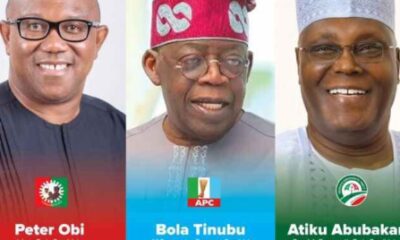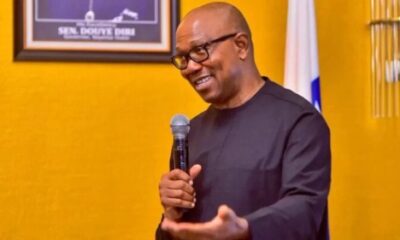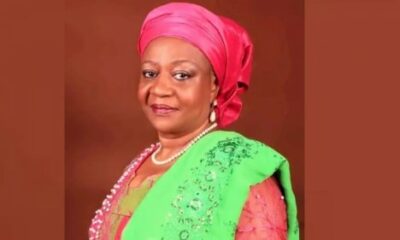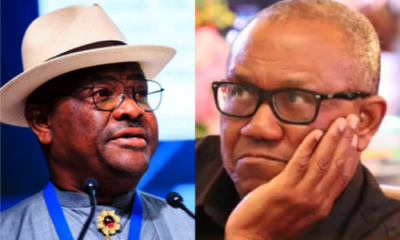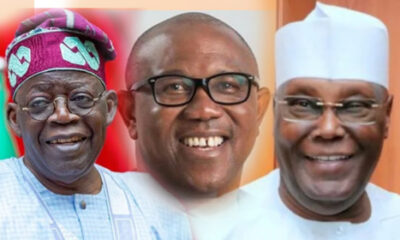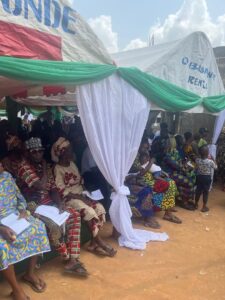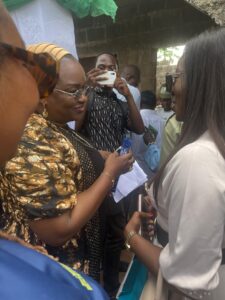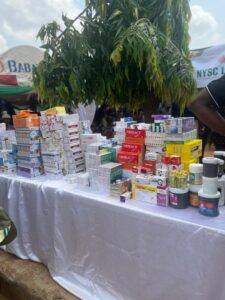The MD/CEO of Heritage Bank Plc, Ifie Sekibo, and other notable Nigerians have affirmed that the apt way to boost economic prosperity and peace in the country is to start addressing leadership challenges and insecurity.
Sekibo and other notable Nigerians like the Presidential aspirant of Labour Party, Peter Obi, Pastor Ituah Ighodalo, Prof. Oyelowo Oyewo, and Dr. Victoria Ekhomu, and Barrister Sotonye Inyeinengi-Etomi, during the 2nd Edition 2022 Forum, one-day International.
Colloquium organized by The Men’s League of Christ Church Port Harcourt, tagged, “What do Nigerians Want?”, extensively brainstormed on the kind of leadership the country needs and how to rescue the country from its current debacle.
Speaking on the topic, “The Economy Nigeria Needs to Break Forth,” Sekibo stressed that of important to achieving the transformation the country needs, there was an urgent need to address insecurity, which according to him, is the foundation of prosperity, as no nation can achieve much where the is no peace.
Sekibo, represented by the Divisional Head, Strategy & Business Solutions, Segun Akanji emphasized that for security purposes, there must be an established functional and value-adding identity system in place.
“On a higher note, I think one of the things that we need to achieve as a country is the issue of functional and value-adding identity management, which is still far away from us, although, some people know that we have BVN, NIMC, and a few other identity capture systems but they have not been as functional and value adding, like the social security number that most people in advanced economies carry,” he stated.
Sekibo further explained that to achieve a prosperous economy, Nigeria needs to find ways and means by policies to build a dual circulation economy that thrives on three pillars.
According to him, we need to focus on building a dual circulation economy where we can expand domestic production and demand by making sure that the masses are employed.
“We need to make our people productive and stop putting subsidies in unproductive zones. When you give subsidies to people with inadequate or no income, they really cannot add value to the economy, and money has a way of flowing away due to the import of consumables from other countries and because of this, a larger portion of every consumption or cash given as subsidy gets out of the country,” said Sekibo.
The bank’s helmsman further explained that to expand the domestic production, the government must give the private sector support to drive employment creation, technology, which is riding on innovation and manufacturing must be in place and, the population which is an added advantage must be well educated.
He highlighted the need to examine how the country could add value to primary production for global export, emphasizing on reduction of over-dependence on foreign markets but rather increasing local production for export, whilst also increasing demand for local products.
Sekibo further affirmed that if states could function as proper federating units and take the lead of the competitive comparative advantages therein, wealth creation would be achieved that would bring about the desired changes.
The former governor of Anambra state and presidential aspirant, Peter Obi lamented the huge indebtedness of the country, which he blamed on unproductivity due to the inimical situation of high unemployment rate resulting in over 80million Nigerians being jobless.
He blamed the cumulative failure of government over the years on insecurity, failure to migrate from sharing formula to production formula and lack of will to transform the power sector, and the need to focus and support the micro, small and medium enterprises (MSMEs).
In his paper titled, “The President Nigeria Needs”, Pastor Ighodalo harped on the need for a leadership change.
He argued that what the country needs now are leaders who have a vision and are ready to sacrifice for the common man, stating, “things must be done differently”.
Ighodalo believed leadership remains the bane of Nigeria’s transformation, stressing that once we get good leadership other things will fall in place.
Prof. Oyewo while speaking on the topic “Restructuring and True Federalism” was of the view that some responsibilities need to be decentralized like the police, power provision, and railway.
Once there is decentralization, he believes that the state will have less dependence on the center, “rebalancing of the constitution in terms of power and security. So, there is a reason for state police.”
Oyewo maintained that regions are closer to the people, thus it will boost security, the economy, and the sense of belonging by the populace.
He also identified data and planning as key factors in ensuring that programs are tailored toward the people.

 BIG STORY4 days ago
BIG STORY4 days ago
 BIG STORY4 days ago
BIG STORY4 days ago
 BIG STORY2 days ago
BIG STORY2 days ago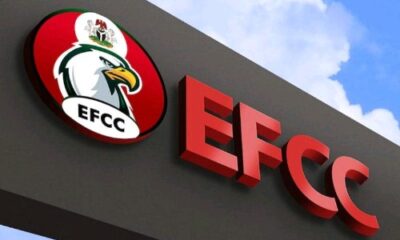
 BIG STORY4 days ago
BIG STORY4 days ago
 BIG STORY2 days ago
BIG STORY2 days ago
 BIG STORY3 days ago
BIG STORY3 days ago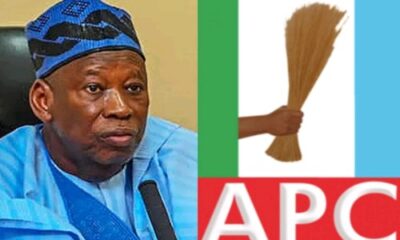
 BIG STORY2 days ago
BIG STORY2 days ago
 BIG STORY3 days ago
BIG STORY3 days ago






